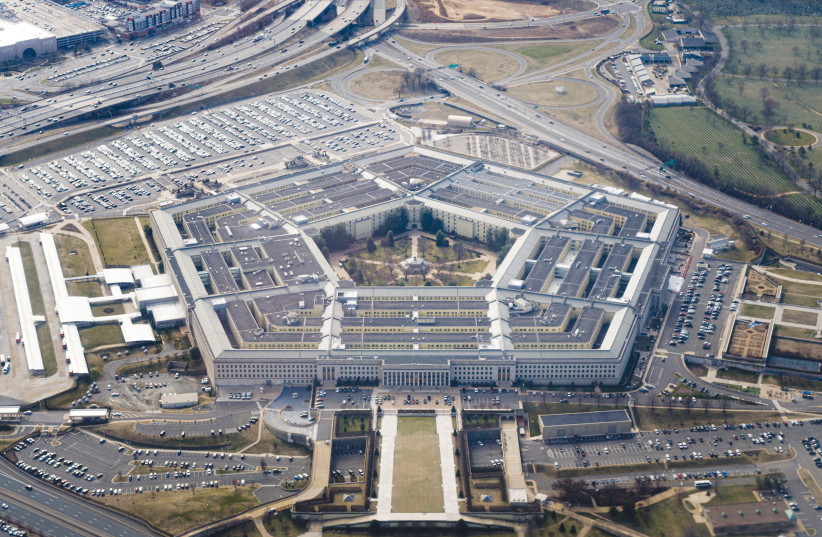Leaks from American security and diplomatic sources are a growing concern, especially when they relate to Israel and Iran's sensitive geopolitical landscape. Rather than protecting Israel's security and fostering diplomatic stability, these leaks are causing anxiety, pressure, and chaos.
This breach of discretion has significant implications, undermining diplomatic efforts and potentially escalating an already volatile situation.
Israeli officials have taken a strategic approach to addressing their security needs, retaliating where they were attacked while avoiding public acknowledgment to maintain stability.
This careful balancing act is crucial in a region prone to escalation. Israeli security and governmental sources, speaking to The Jerusalem Post, noted that Israel responded proportionally: "An eye for an eye, a tooth for a tooth."
Despite this, they refrained from officially accepting responsibility for an attack, knowing that public acknowledgment could escalate tensions.

However, the Pentagon's disclosure of Israeli involvement in attacks contradicts this strategic restraint. Israeli sources expressed confusion and disappointment over why the Pentagon decided to inform the American media instead of maintaining silence.
Unnecessary tension, diplomatic complications
By doing so, the American side may have contributed to unnecessary tension and diplomatic complications, eroding the delicate balance maintained by Israeli officials.
The American approach is concerning because it has wider repercussions. When leaks about planned Israeli strikes and anticipated Iranian retaliations emerge, they can create a climate of fear and uncertainty. Bloomberg reported that Israel had notified the United States about a planned strike 24 to 48 hours before it happened.
This advance notice should have encouraged American officials to exercise discretion and restraint. Yet, the news of the planned strike was leaked to the public, potentially heightening tensions and creating a sense of alarm.
An exclusive report by The Wall Street Journal indicated that Iran might retaliate against Israel within the next 24 to 48 hours. This report quoted an individual briefed by Iranian regime leadership, suggesting that the attack plans were discussed, although "no final decision has been made."
Given that context, the Pentagon's leak seems to have created an environment of heightened alertness, with Israel preparing for a direct attack on its north or south regions.
Meanwhile, other American media outlets, such as CBS and ABC, have reported on the potential for Iranian attacks against Israel, with CBS highlighting the White House's warning that Iran might use missiles and drones to attack military sites within Israel.
The ABC report mentioned that US intelligence shared information with lawmakers about potential Iranian attacks on "regional assets" by Israel. This widespread sharing of sensitive information risks destabilizing a delicate geopolitical situation.
The leaks have triggered international reactions, with countries like the US, France, Russia, and India issuing travel warnings. Despite this, Israel’s Home Front Command remained silent, while the country's war cabinet met, and the army was on high alert for an Iranian response.
This reaction is a clear indication of the potential ramifications of these leaks. The leaks not only jeopardize Israel's security but also create an environment of uncertainty that affects other nations.
The underlying problem is the role of American security and diplomatic sources in managing sensitive information. While transparency is necessary to maintain public trust, indiscriminate leaks during volatile times can cause more harm than good.
The disclosures undermine Israel's strategic restraint and potentially provoke Iranian responses that could spiral into broader conflicts.
The impact of these leaks extends beyond Israel and Iran, affecting global security and diplomacy. The balance between maintaining confidentiality for strategic reasons and ensuring public accountability is delicate. In this case, American sources appear to have failed to respect that balance, causing more disruption than stability.
As the region navigates these turbulent times, the focus should be on maintaining discretion and supporting diplomatic efforts to prevent escalation. Leaks from American sources must be carefully managed to ensure they do not further inflame an already volatile situation.
The security and stability of nations, particularly in such sensitive contexts, depend on the prudent handling of sensitive information and a commitment to preventing unnecessary chaos and anxiety.
